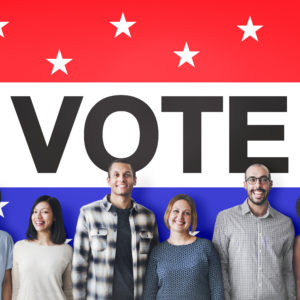President Trump was elected on the promise of protecting American industry from foreign imports, and made good on that promise by raising tariffs on all sorts of products. He has spent the lion’s share of his time in office planning, announcing and leveling trade sanctions against much of the rest of the planet.
The last time economists took mercantilist thought seriously — the idea that exports are good and imports are bad — the New World was ruled by European monarchs. Around the same time our country was founded, economists jettisoned mercantilist thought in the face of both theory and evidence that trade was actually a very good thing.
Unfortunately, economic lies fit much more snugly into sound bites than do economic truths. When Trump declared that our fiscal woes were a result of trade deficits, Americans trusted that a successful businessman understood the economics involved. Sadly, being successful in business does not bespeak an understanding of economics any more than being successful in sex bespeaks an understanding of genetics. But politicians don’t get elected by admitting that they don’t understand the things they to want to manage.
And this is where the ease with which economic lies are believed becomes dangerous. It’s easy to convince voters that tariffs protect American jobs because voters see the jobs that are lost in Pittsburgh and Dearborn to competition from foreign steel. The reality is harder to believe, because it requires looking beyond Pittsburgh and Dearborn to Fayetteville, Phoenix, Detroit and all the other American cities in which the same tariff costs jobs by making steel, and the numerous products we make from it, more expensive.
Yes, a steel tariff saves jobs in specific industries in specific cities. But it also raises prices for all Americans who buy things made from steel, and costs jobs in numerous industries across numerous cities where Americans use steel to make the things we export to foreign countries. Politicians craft the tariff debate as if it were about the U.S. versus China. The reality is that tariffs are about a few politically favored U.S. industries versus many politically unfavored U.S. industries and U.S. consumers.
In a partial about-face, the president recently signed the United States-Mexico-Canada Agreement, or USMCA. This is a mixed bag of trade restrictions and freedoms that replaces NAFTA as the rules for trade among North American countries. Like NAFTA, the USMCA takes about 1,800 pages to define “free trade” in North America. That’s about 1,800 pages more than is necessary. A true free trade agreement requires exactly zero pages, because free trade is what naturally happens when governments leave people alone to transact business as they wish.
It doesn’t bother us that our households have “trade deficits” with our grocery stores. Manufacturers in Albuquerque don’t demand that their politicians protect them from competitors in Tucson. Pennsylvanians don’t fret over buying wine from California vintners instead of those in Virginia.
In fact the only people who might complain are those who promote “buying local,” a concept as intellectually bankrupt as are Trump’s tariffs, and for the exact same reasons. In all of these economic transactions, businesses offer products and consumers search for the best quality at the lowest prices. The only difference between these examples and international trade are lines on a map. As far as the economics is concerned, those lines are irrelevant.
What politicians don’t want you to know is that tariffs and trade agreements are tools they use to pry votes from citizens. Politicians play on people’s economic ignorance by focusing on the American jobs tariffs save, while ignoring the more numerous American jobs that tariffs destroy. Rather than thanking politicians for managing trade, we should demand that they leave free people alone to spend their money as they see fit.
Economists learned more than two centuries ago that the benefits of free trade far outweigh the costs. Politicians should be ashamed for peddling economic lies simply to extract votes from people who trust them to know better. Lucky for them, politicians never seem to have any shame.

